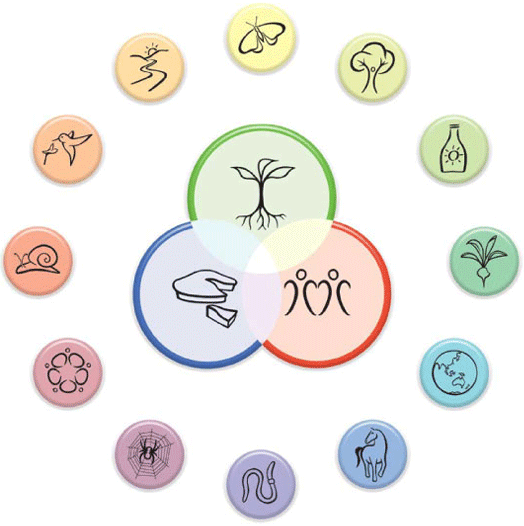Actual Temperature
10 degrees Celsius
Humidity : 85%
Rainfall : 0.00mm
Wind : Calm
The morning class was Lisa Burton on Organic Unit. Organic food - what it is? Organic agriculture and food production systems avoid or exclude the use of most synthetic pest control compounds and fertilisers, antibiotics, growth promotants and food additives derives from non-organic sources, as well as genetic modifications and irradiations.
The different between organic and conventional food lies in the way the food is grown, handled and processed. There is no recognised scientific test to conclusively show that a product is organic.
Lisa bought some organic and non-organics food such as milk, apples, kiwi fruits, rice crackers and chocolates. She make us test by tasting all the food and differentiate organic and non-organic food. After testing the food we rate accordingly to the taste of organic and non-organic food.
In the afternoon we had Permaculture Class with Kim Thomas on Permaculture's ethical underpinnings that we watching a video show by Permaculture expert Penny Livingston-Stark shows how natural systems can teach us better design practices. Learning to work with the earth not only creates a healthier environment, it also nourishes the people who live in.
We watch a video on Food Inc. is a 2009 American documentary film directed by Emmy Award-winning filmmaker Robert Kenner. The film examines corporate farming in the United States, concluding the agribusiness produces food that is unhealthy in way that is abusive of animals and environmentally harmful. The documentary generated extensive controversy in that it was heavily criticized by large American corporations engaged in industrial food production.
The questions are :
Identify examples within the movie, Food Inc. that do support each of the three main ethics of permaculture.
1] Earth care 2] People Care 3] Fair Share
Identify examples with the movie, Food Inc. that support each of the three main ethics of permaculture.
1] Earth care 2] People care 3] Fair Share
In the afternoon we had Permaculture Class with Kim Thomas on Permaculture's ethical underpinnings that we watching a video show by Permaculture expert Penny Livingston-Stark shows how natural systems can teach us better design practices. Learning to work with the earth not only creates a healthier environment, it also nourishes the people who live in.
We watch a video on Food Inc. is a 2009 American documentary film directed by Emmy Award-winning filmmaker Robert Kenner. The film examines corporate farming in the United States, concluding the agribusiness produces food that is unhealthy in way that is abusive of animals and environmentally harmful. The documentary generated extensive controversy in that it was heavily criticized by large American corporations engaged in industrial food production.
The questions are :
Identify examples within the movie, Food Inc. that do support each of the three main ethics of permaculture.
1] Earth care 2] People Care 3] Fair Share
Identify examples with the movie, Food Inc. that support each of the three main ethics of permaculture.
1] Earth care 2] People care 3] Fair Share
Permaculture Design Principles


No comments:
Post a Comment